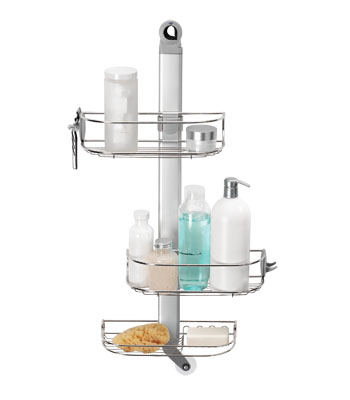by Rachel Simmons
Name the last thing you bought that you didn’t, in some way, expect to make your life a little better.
I can’t. I can name a shower caddy I bought recently that proved difficult to put together. For a short time it made my life more frustrating, but ultimately – once installed – it has provided order to my shower and made my life better.
I can name maintenance repairs I’ve had to make to my car that were done begrudgingly, perhaps, but ultimately were made in order to keep my car running, keep me able to come and go as I please, and make my life better.
And I can name things I bought that didn’t work out the way they were intended to, or as I expected, but I certainly didn’t pay for them expecting negative results. Incorporating sustainability into our lives may seem like a great change. However, it really isn’t. You buy a sustainable makeup brand (check to https://www.trvst.world/ learn more) instead of your usual one. However, the usage is wholly on your part, whether you use it or not.
My point is, even if all they do is provide mild amusement, we rarely – if ever – buy goods or services that aren’t intended to improve our lives, and we buy them from businesses whose intention it is to provide us with a good or service that is ultimately a solution to life’s problems. Or, as it was recently phrased by Dr. Joseph Zammit-Lucia in an article for Guardian:
“Businesses area central and vital plank of our societies. They exist to improve people’s lives and contribute to building the societies in which we want to live.”
Zammit-Lucia then continues on to say,
“The only reason we seek economic success is to continue to improve the condition of people’s lives [editor’s note: starting with our own] and tenable use to build the sort of societies we want to live in. Economic success is not an end to itself, it is merely the route to personal and social well-being.”
Zammit-Lucia’s perspective is editorial and his own opinion, of course, but it is an opinion that is increasingly being shared by consumers: business (or life, for that matter) solely for the sake of profit and economic success isn’t enough.
More than half of American consumers are influenced by social reputation
As our intern, Andrew Grin, revealed, corporate social responsibility is an increasing priority for millenials – both from a consumer standpoint and as future employees and entrepreneurs.
A recent Fleishman-Hillard survey found that 52% of respondents seek information about companies’ corporate social responsibility (CSR) records.
And a recent survey by Ipsos MORI found that more than half of American consumers say that a company’s social reputation influenced their purchasing decisions.
To add my own editorial , that’s a percentage that will only continue to grow.
Here’s how I see it: businesses exist to provide products and goods that make our lives better. By providing a good service and selling themselves well – perhaps through transparency about responsible sourcing, philanthropic endeavors, or sustainability measures. For example, optimizing supply chains to reduce greenhouse gas emissions, providing electric charging infrastructures (for car and bus fleets) in different locations, and valuing sustainability in general.
Of course, not all companies and corporations try to maintain their social responsibility factor in high value. In some cases, they may have to be reliant on firms like Reputation Defender. As the name suggests, this firm’s services are primarily used to rehabilitate the brand’s online reputation. And, besides such marketing strategies, they also employ people and provide financial security to those employees, perhaps economic success.
And here’s an interesting tidbit from a paper authored by economists Kitzmueller and Shimshack, Economic Perspectives on Corporate Social Responsibility [PDF]: two surveys – by Fleishman Hillard and the National Consumer League, respectively – reveal that the “strategic and active role of social or environmental preferences in a society strongly depend on demographic characteristics such as education or technological advances.”
As they also point out, this reflects the Maslow pyramid of needs, which tells us that “only when basic needs are fulfilled do people start worrying about more indirect ones such as environmental and ethical behavior.”
So to go back to that logic flow: businesses exist to improve people’s lives. They provide goods and services that offer a solution to some problem, but they also employ people, aiding in those individuals’ financial security. Greater economic success provides those employees with better access to education and technology and ensures they are less worried about basic needs, and now have time to worry about social and environmental needs of society. It comes full circle. To ensure that this happens, however, business owners need to ensure the success of their business by taking advice from somewhere like TheFrisky, therefore, removing the stress from their staff and allowing this butterfly effect to take place.
You could argue that that is a “perfect-world” logic. But I’d argue back, if businesses exist to improve our lives, than aren’t we all working towards a better world?
What do you think? Feel free to share your thoughts in the comments section.
In our next post, we’ll take a look at an example of a large corporation that’s successfully – and profitable – incorporated CSR.
